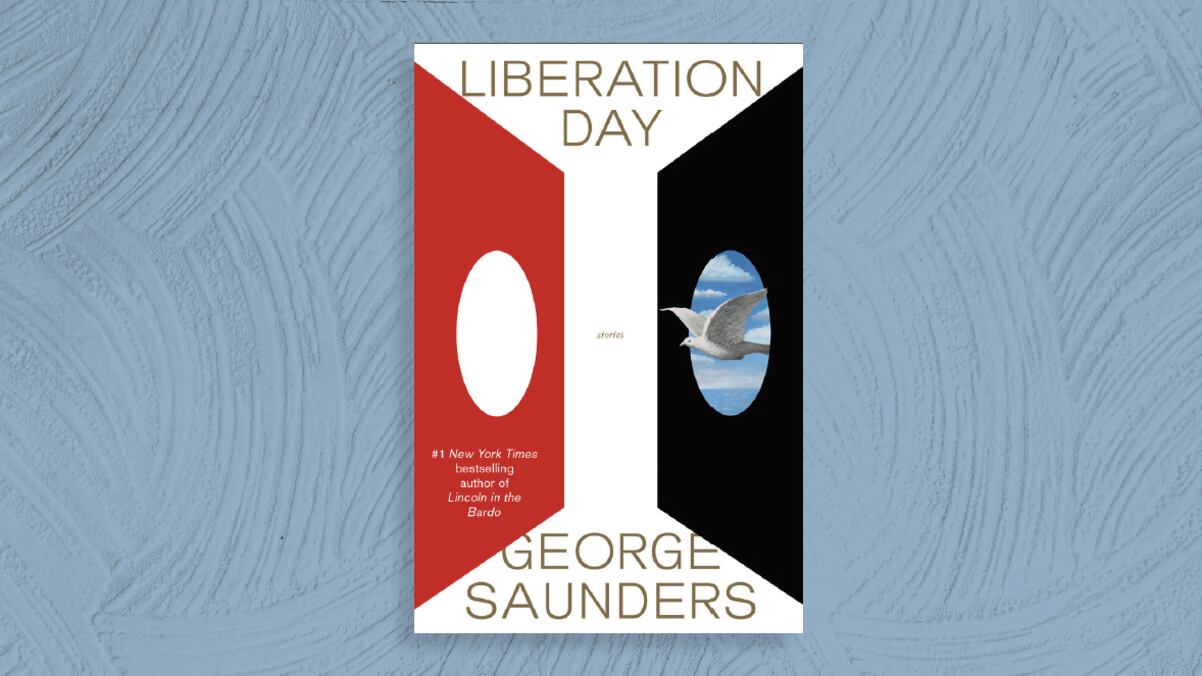“Most of the time we live on the back of a tiger,” George Saunders tells WW. “And most of the time, the tiger is sleeping. We get to concentrate on being writers, parents; we know who we are and what we’re trying to do. Then every so often the tiger wakes up. And during the pandemic, the tiger woke up just to say, ‘Hey, you’re not in control of shit, actually.’ So, it’s lovely when things go according to plan and the world is your friend. But when it isn’t, that’s pretty interesting too.”
Saunders’ wisdom reverberates through Liberation Day (Random House, 256 pages, $28), his first short story collection since 2013′s acclaimed Tenth of December (in the interim, he won the 2017 Man Booker Prize for best work of fiction in English for his novel Lincoln in the Bardo and wrote A Swim in the Pond in the Rain, arguably one of the best books about writing ever written).
While the characters in December often reach some version of a heroic ending, the nine stories in Liberation Day are written in what Saunders calls “a different kind of storytelling register” that aligns with the grim world we’re living in.
“You can have a big heroic narrative, but what’s going on with COVID? How’re we doing on climate change? Some problems are really stubborn, and they don’t just go away because you decide to face them,” he says.
Saunders’ stories start by playing with language to make it musical and poetic (note the line breaks when the protagonist in “Elliott Spencer” is learning to talk again, or the brainstormy thoughts of the writer in “The Mom of Bold Action”).
“A lot of times, something just feels fun, so I kind of just go for it,” Saunders says. “And after that, of course, you try to make it meaningful and coherent, but the first impulse is often like: You know when you’re a kid and you’re walking to school and you suddenly just feel like singing? Why? Well, just because, you know?”
That perspective informs “Elliott Spencer,” in which an organization brainwashes formerly homeless people into becoming something like real-life bots to use in political protests. The inspiration for the story’s protest scenes came to Saunders after he covered the 2016 Trump campaign for The New Yorker—and watched protesters wait outside auditoriums until Trump’s supporters emerged.
“It was like a terrible meeting of two rivers,” he says. “The feeling was so aggressive and violent and almost fake…I thought, 20 minutes from now, if one of these guys gets a flat tire, the other is gonna pull over and help him. But they’re screaming at each other like they’re the worst enemies in the world. So that was a nightmare for me. It really gave me a headache.”
Equally terrifying is the collection’s title piece, about a group of people whose brains are encoded with knowledge so intimate they can reenact Civil War battles in disturbingly accurate detail. If that sounds similar to Saunders’ 2012 story “The Semplica-Girl Diaries,” it’s because while writing “Liberation Day,” he was working on a “Semplica” film adaptation (currently, there are plans for it to be shot in 2023 with director Richard Ayoade).
Collectively, Liberation Day is about people who are confused or misled or deluded in some way. “And then something happens to move them towards truth,” Saunders says.
He adds: “Originally, I thought it was kind of a dark book, but when I see it that way, it’s kind of hopeful. Because every single person in this book, they start out in one place and the world gently—or not gently—urges them to be a little more truthful about things. Which, I think, is ultimately a pretty hopeful thing.”
SEE IT: George Saunders appears in conversation with Jess Walter (and moderator Geoff Norcross) at the Portland Book Festival, First Congregational United Church of Christ, 1126 SW Park Ave., 503-227-2583, literary-arts.org. 10 am-11 am Saturday, Nov. 5. $15-$25 adults; $5 Arts for All; military servicemembers, veterans, and 17 and under free.
